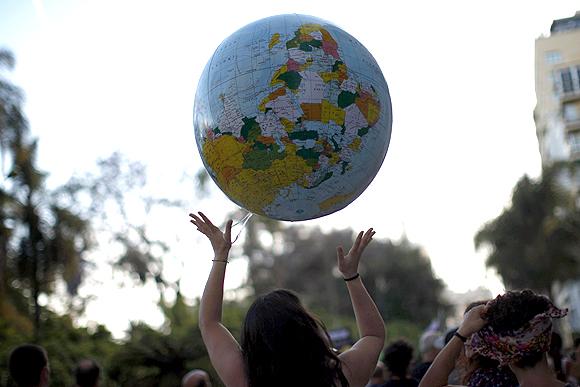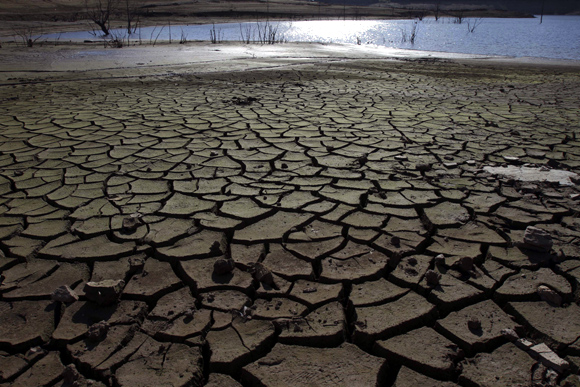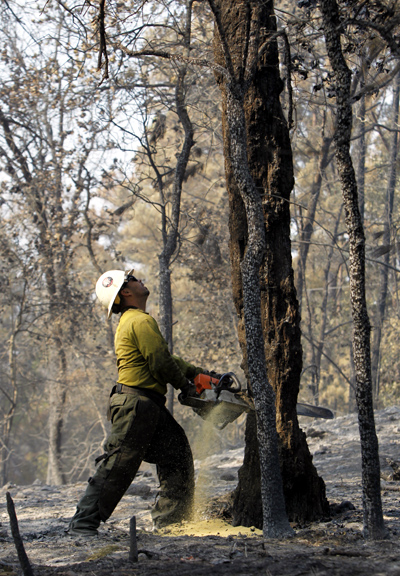 | « Back to article | Print this article |
BEWARE: By 2030 even 2 earths WON'T suffice!
Mankind is draining the earth's resources so quickly that the globe would be bled dry before the end of the century at this rate, a new report has revealed.
According to the 2012 World Wildlife Fund's 'Living Planet Report' released this month, humans are living outside their means, depleting natural resources like forests, air and water 50 per cent faster than the planet can renew.
BEWARE: By 2030 even 2 earths WON'T suffice!
If the trends aren't reversed, by 2030 we'd need more than two planet earths to sustain human activity, the study claims.
"If we just do business as usual...we're just going to continue moving in this direction. At some point, the earth's going to just give out. We don't know when. But that's a pretty scary thing to think about," the New York Daily News quoted Colby Loucks, director of conservation science at WWF, as saying.
"The question is, we don't know what the tipping point is," Loucks said.
BEWARE: By 2030 even 2 earths WON'T suffice!
According to research by the WWF, the demand on the planet's natural resources has doubled over the last 50 years, with most of the burden falling on poorer nations.
Wealthy countries can have up to five times the "ecological footprint" as low-income countries, because consumption is much higher.
BEWARE: By 2030 even 2 earths WON'T suffice!
The people in high-earning countries tend to eat more, eat processed foods, drive more and drive further, Colby said. And they're often importing the resources for this lifestyle from low-income nations.
"If all of humanity lived like an average resident of Indonesia, only two-thirds of the planet's biocapacity would be used," the WWF report states.
BEWARE: By 2030 even 2 earths WON'T suffice!
BEWARE: By 2030 even 2 earths WON'T suffice!
The report also found the population of animal species have dropped an average of 30 percent since 1970.
Tropical species fell off as much as 60 percent due to deforestation and urbanization.
BEWARE: By 2030 even 2 earths WON'T suffice!
On the upside, temperate species, like the panda, had slight population growth since efforts were made to protect and replenish the species.
Researchers collected population data from nearly 8,000 populations of more than 2,500 species of mammals, birds, reptiles, amphibians and fish around the world. Data collection began in 1970.
The report was released ahead of the United Nations conference on sustainable development, called the Rio +20, in Rio de Janeiro, Brazil.
TOP photo features of the week
Click on MORE to see another set of PHOTO features...







